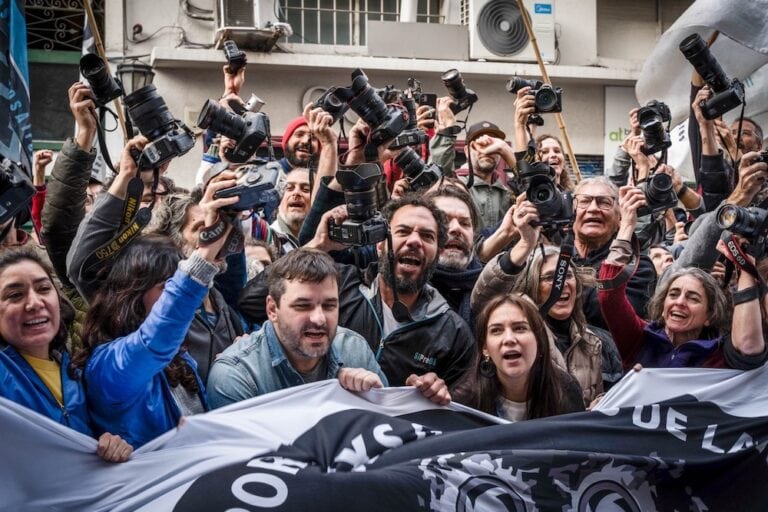(Periodistas/IFEX) – If a bill which is in the works and which has been endorsed by the World Bank is successful in eventually moving through the Argentine legislature, Pedro Pou, head of the Argentine Central Bank, would have public funds at his disposal to take legal action against media who call into question the actions […]
(Periodistas/IFEX) – If a bill which is in the works and which has been
endorsed by the World Bank is successful in eventually moving through the
Argentine legislature, Pedro Pou, head of the Argentine Central Bank, would
have public funds at his disposal to take legal action against media who
call into question the actions he has taken in response to the collapse of
some of Argentina’s banks. The bill would grant Pou and the Bank’s
directors immunity against the wave of accusations being made against them
regarding the management of the Bank.
The initiative is part of the conditions to which Argentina has agreed to
obtain World Bank emergency loans. According to a World Bank document
obtained by the daily “Página/12”, Pou could benefit from several measures
which would grant him special legal privileges. In addition, the document
proposes a special fund be created to, among other things, “defend civil
servants from print media reports which are not based on adequate
documentation.”* (The bill which is in the works is not yet in the
legislature. “Página/12” obtained the information before government
officials made it public, explains Periodistas.)
The World Bank report is dated 28 September, a few days before the fall of
the Banco Mayo, which collapsed in early October and is about to be bought
up by Citibank. According to the text, protective measures sought in the
initiative “could take various forms, including prohibiting persons who are
not justice officials from taking criminal action against civil servants.”
If this were to come to pass, for example, the complaint filed by a group
of legislators and another filed by a consumers’ group against the Central
Bank’s management in relation to the Banco Mayo collapse would be
inadmissible. The most striking suggestion is the proposal to “create at
the ministerial level (and [for] other designated entities) an internal
fund, properly administered to assist civil servants being prosecuted in
the legally authorised exercise of their functions; and to allow for the
use of these funds in civil servants’ defence against print media reports
which are not sufficiently substantiated.”
With such measures in place, Argentina would become a leader in the use of
public resources for civil servants to “defend themselves” against the
press by taking legal action against it, says Periodistas.


